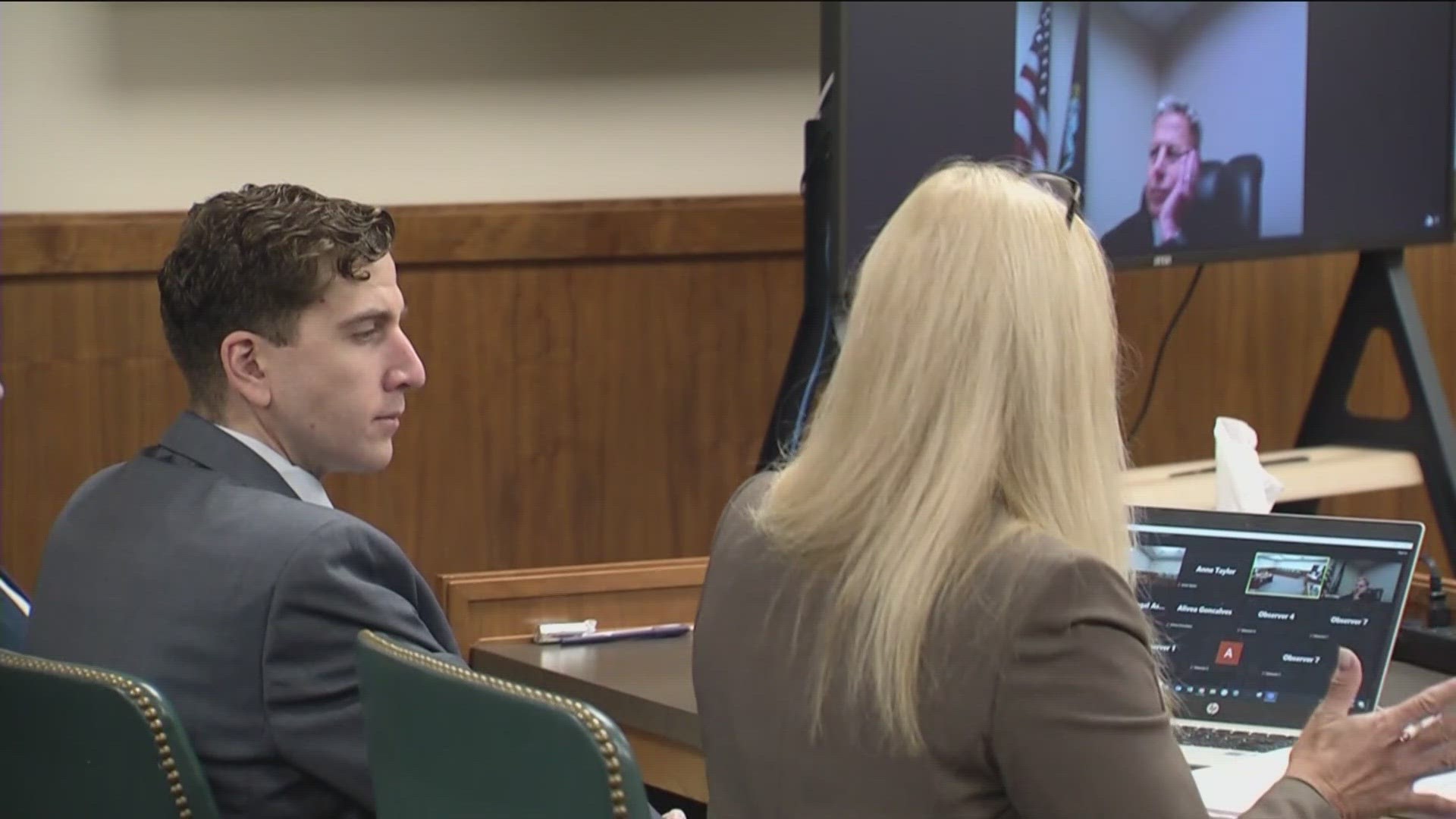MOSCOW, Idaho — Update: In a status hearing held on August 23, 2023, Bryan Kohberger waived his right to a speedy trial. The trial will not begin October 2, 2023, as initially planned. The headline for this article has been updated.
RELATED: Bryan Kohberger waives right to a speedy trial, plans to file motion to strike death penalty
Original Article:
Bryan Kohberger, the man charged with the murders of four University of Idaho students, returned to court on Friday. Kohberger's defense presented several motions to the judge, but the majority of the day was spent reviewing the DNA collected in the case. The judge confirmed the trial will still take place this year.
Trial Date Set
The state recommended maintaining the trial date for October 2, 2023, expressing concerns about potential delays affecting victim families and the overall integrity of the trial.
The defense also presented a motion to stay proceedings due to irregularities in the grand jury process but was denied by the judge, who found no substantial failure in the process.
The judge stated that based on the information provided, he was not convinced there had been a failure on the prosecutor's part. The trial is scheduled to proceed in October, with jury selection taking place the week before. Up to 1,000 potential jurors could be summoned for the trial.
If convicted, Bryan Kohberger faces the death penalty.
DNA Evidence
The defense team argued that it needs all the raw material, including what was tested, how it was tested, and what it was compared to. They assert that without access to all the DNA evidence, it is impossible to determine if the testing was conducted correctly or if any rules were violated.
Anne Taylor, Kohberger's lawyer, specifically pointed to three unidentified male DNA samples taken from the murder scene that the defense has not received. Prosecutor Bill Thompson countered, arguing that the defense already possesses everything accessible to the state.
Thompson stated, "All I'm hearing is speculation that they wish there was something there. We can't respond to something that doesn't exist."
Thompson concluded that the three samples in question were not uploaded to a Combined DNA Index System (CODIS) database due to ineligibility. He claimed that defense attorney Anne Taylor was informed of this by the lab.
The state contends that disclosing the material could potentially infringe on the privacy of hundreds of individuals in a genetics database, prompting a call for the issuance of a protective order.

